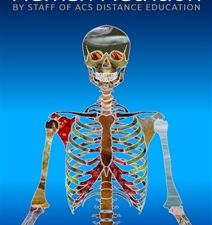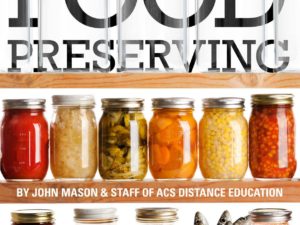Product Description
Nutrition is a potent component in human health, and can be a valuable contributor toward improving recovery from injury or illness. As such, nutrition can be used therapeutically to support recovery from a range of health issues.
Studies have shown how good nutrition promotes a healthy immune system preventing infections, aids tissue growth and replacement and supports the healthy functioning of organs such as the heart and pancreas. Conversely, inadequate intakes of nutrients, or depleted levels of nutrients in the body puts a person at risk of malnutrition. This in turn is associated with problems such as reduced immunity, poor wound healing and weakened response to recovery from disease or surgery – problems that increase the length of hospital admissions and duration/prognosis of a disease or illness and can also increase the risk of mortality.
The contribution of nutrition to recovery must be put into perspective though. The human body is complex; and there are many different factors that can affect our wellbeing. These include mental health, physical health, genetic predisposition, age, previous injury, environmental influences and daily activity; as well as what you eat.
CHAPTER 1 INTRODUCTION 5
Scope and nature of therapeutic nutrition
How does therapeutic nutrition differ to normal nutrition?
Applications of a therapeutic diet
Nutrition in the recovery from malnutrition
Nutrition in the recovery from infections
Nutrition in the treatment of chronic conditions
Nutrition in the rehabilitation of patients following a traumatic event
Interpreting nutritional advice
Validity of research
CHAPTER 2 INTERACTIONS WITH NUTRITION
What is health?
Age
Gender
Physical activity
Genetic predisposition
Environmental influences on health
Effect of diet on physical and mental health
Mental health
CHAPTER 3 HOW YOU EAT
Methods of providing nutritional support
Oral nutrition support
Modified consistency foods
Soft foods
Pureed foods
Thickened liquids
Food fortification
Oral nutritional supplements
Oral nutrition and the hospitalized patient
Delivering nutrition through a feeding tube
Parenteral nutrition
CHAPTER 4 A – Z OF PROBLEMS AND THE THERAPEUTIC RESPONSE
Part of the body – the brain
Mental illness
Depression
Eating disorders
Dietary management
Overeating
Undereating
Swallowing difficulties
Additional problems affecting the mouth
Wired jaw
Taste
Gastritis and stomach ulcers
Hypochlorhydia
Part of body – the liver
Part of the body – the heart
Part of the body – the pancreas
Diabetes
Part of body- the kidneys
Part of body – the intestine
Diarrhoea
Constipation
Inflammatory bowel disease
Diverticulitis
Coeliac disease
Part of the body – muscles and bone
Osteoporosis
Arthritis
Part of the body – the skin
Acne
Eczema
APPENDIX
If you would like to qualify as a nutritionist please see our nutrition courses at http://nutrition.healthcourses.com.au





